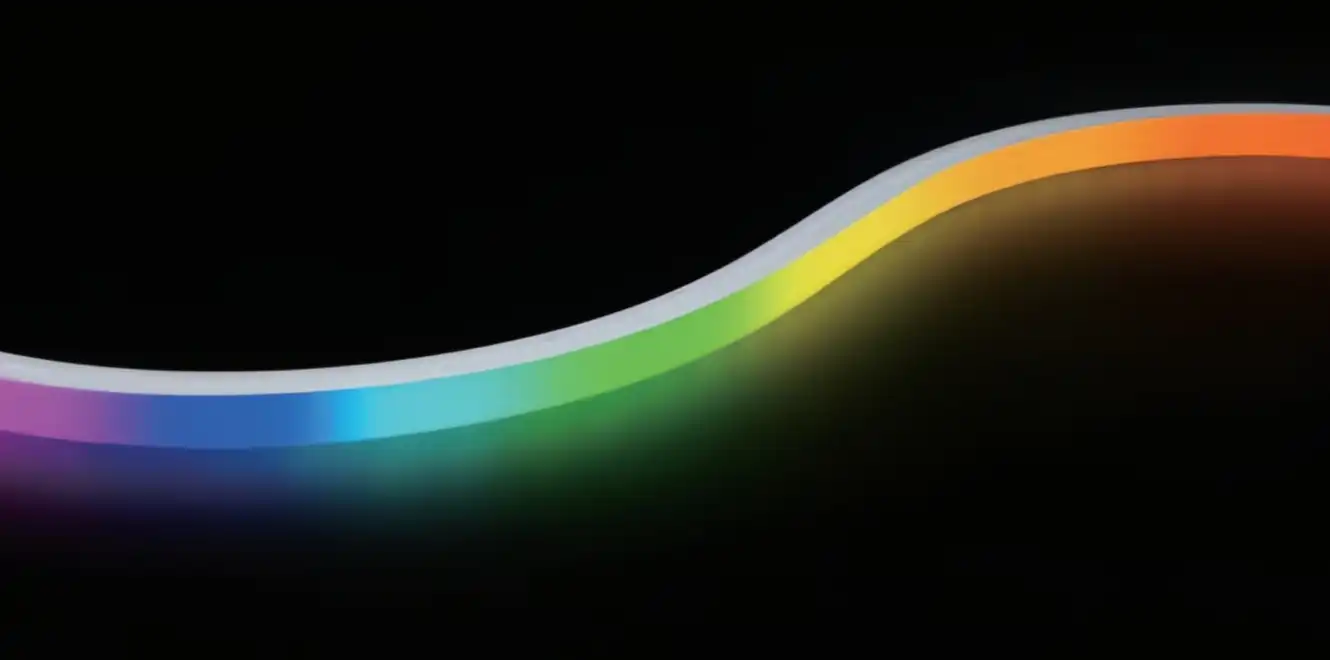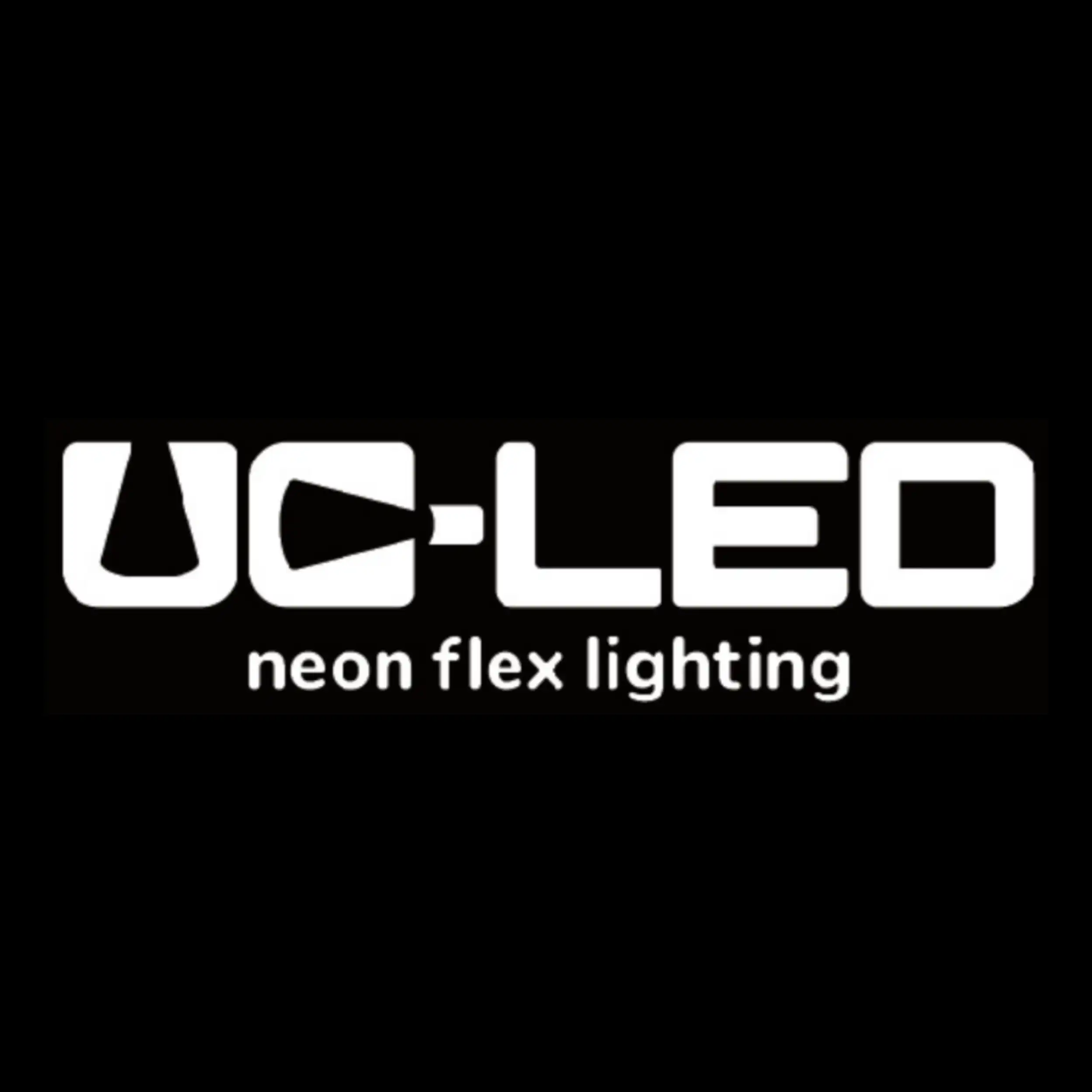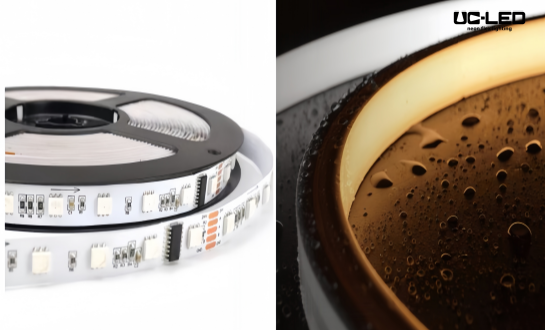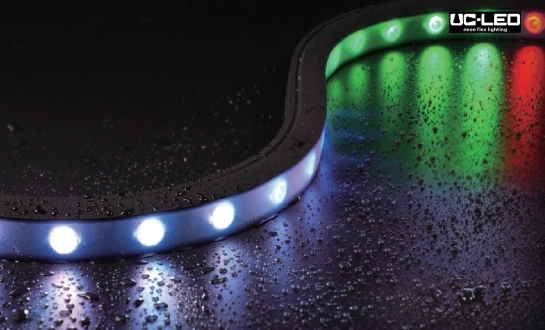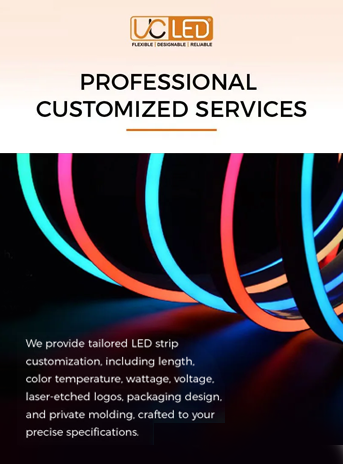Understanding Silicone Neon Flex: What It Is and How It Works?
The Anatomy of Silicone Neon Flex
Silicone neon flex is a innovative lighting product that combines LED technology with flexible silicone tubing. At its core, it consists of a strip of LEDs encased in a soft, bendable silicone housing. This design allows for the creation of smooth, continuous lines of light that can be shaped into various forms and designs.
The silicone casing serves multiple purposes. It protects the LEDs from moisture and dust, making the product suitable for both indoor and outdoor use. Additionally, the silicone material diffuses the light from the LEDs, creating a soft, even glow that mimics the appearance of traditional neon tubes.
LED Technology: The Heart of Silicone Neon Flex
The LEDs used in silicone neon flex, as well as in flexible neon strip, are typically SMD (Surface Mounted Device) LEDs. These compact, energy-efficient light sources are arranged in a linear configuration along a flexible circuit board. The density of LEDs can vary depending on the specific product, but common configurations include 60, 120, or even 180 LEDs per meter.
One of the key advantages of LED technology in silicone neon flex is its low power consumption and long lifespan. Most silicone neon flex products have a rated lifespan of 50,000 hours or more, far exceeding that of traditional neon lighting.
Color Options and Control
Silicone neon flex is available in a wide range of colors, including single-color options and RGB (Red, Green, Blue) variants that can produce multiple colors. Some advanced models even offer RGBW (Red, Green, Blue, White) capabilities for an expanded color palette.
Control systems for silicone neon flex can range from simple on/off switches to sophisticated controllers that allow for color changing, dimming, and even programmable lighting effects. For hobbyists and makers, this versatility opens up a world of creative possibilities.
Getting Started with Silicone Neon Flex: Tips for Beginners
Choosing the Right Silicone Neon Flex
When selecting silicone neon flex for your project, consider the following factors:
- Color: Decide whether you need a single color or multi-color option.
- Size: Silicone neon flex comes in various widths and thicknesses. Choose one that fits your project requirements.
- Flexibility: Consider how much bending your project will require and select a product with appropriate flexibility.
- Power requirements: Ensure you have a compatible power supply for your chosen silicone neon flex.
- IP rating: If your project will be exposed to moisture or outdoor conditions, choose a product with an appropriate IP (Ingress Protection) rating.
Essential Tools and Materials
To work with silicone neon flex, you'll need a few basic tools and materials:
- Silicone neon flex strip
- Power supply (compatible with your chosen product)
- Wire cutters/scissors (for cutting the silicone neon flex)
- Soldering iron and solder (for connecting wires)
- Heat shrink tubing (for insulating connections)
- Mounting clips or channels (for securing the silicone neon flex)
- Adhesive (if needed for your mounting solution)
Basic Installation Steps
While specific installation methods may vary depending on your project, here's a general outline of the process:
1. Plan your design: Measure and mark where you want to install the silicone neon flex.
2. Cut to size: If necessary, cut the silicone neon flex to the required length. Always cut at designated cutting points to avoid damaging the LEDs.
3. Connect power: Solder the power connections, ensuring proper polarity. Use heat shrink tubing to insulate the connections.
4. Mount the silicone neon flex: Use mounting clips or channels to secure the strip in place. Some products may allow for adhesive mounting.
5. Test the installation: Connect to the power supply and test your installation to ensure everything is working correctly.
Creative Applications and Project Ideas
Home Decor and Accent Lighting
Silicone neon flex can add a unique touch to your home decor. Consider these ideas:
- Create a backlit headboard for your bedroom
- Add under-cabinet lighting in your kitchen
- Illuminate bookshelves or display cases
- Create a custom wall art piece using shaped silicone neon flex, along with flexible neon strip.
Custom Signage and Branding
For small business owners or event planners, silicone neon flex offers an affordable way to create eye-catching signage:
- Design a custom logo sign for your business
- Create illuminated menu boards for restaurants or cafes
- Make unique wedding or event signage
Art and Sculpture
Artists and makers can incorporate silicone neon flex into their creations:
- Create light-based sculptures
- Add illumination to mixed media artworks
- Design interactive light installations
Automotive and Vehicle Customization
Automotive enthusiasts can use silicone neon flex to add unique lighting to vehicles:
- Install underbody lighting
- Add accent lighting to the interior of cars or boats
- Create custom motorcycle or bicycle lighting
Conclusion
Silicone neon flex offers an exciting and accessible medium for hobbyists and makers to explore creative lighting projects. Its versatility, durability, and ease of use make it an excellent choice for beginners looking to add a unique glow to their creations. As you embark on your silicone neon flex journey, remember to prioritize safety, follow manufacturer guidelines, and let your creativity shine. For more information about silicone neon flex and other innovative lighting solutions, feel free to reach out to us at Linda@uc-led.com.
